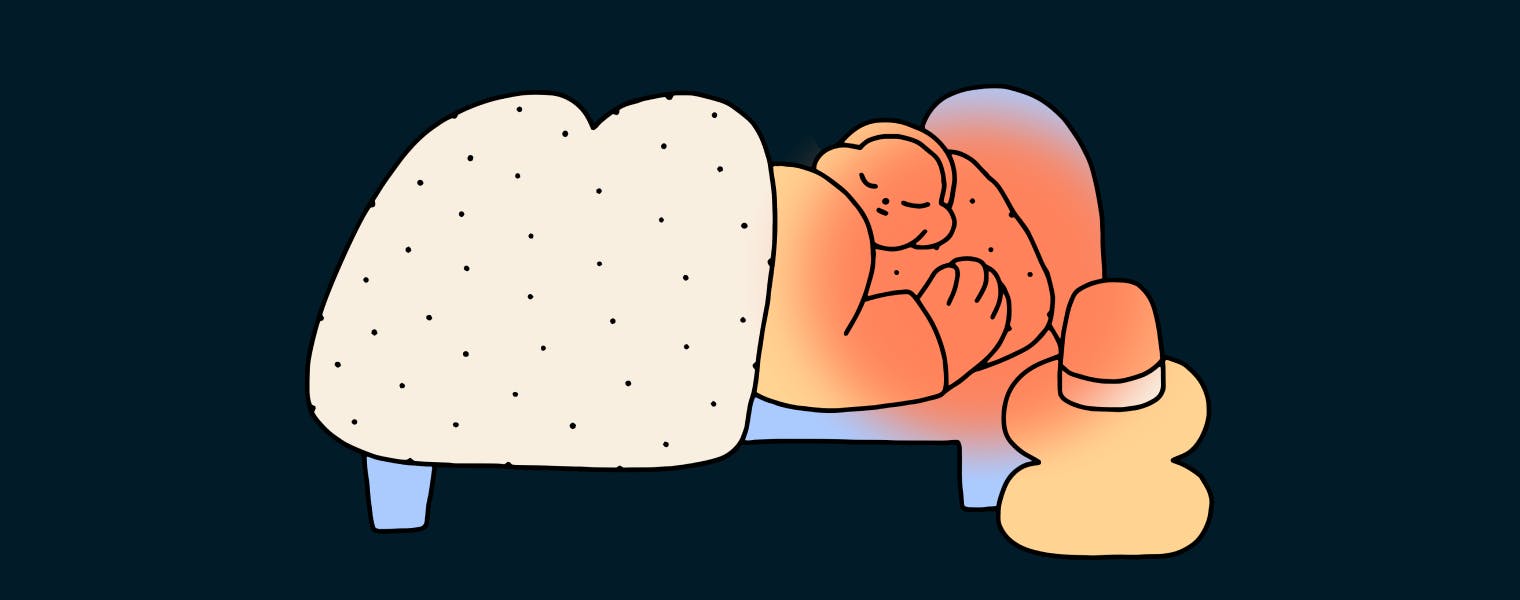What is Dysania? Here’s Why You Can't Get Out of Bed

There are days when it just seems impossible to get out of bed. Whether it’s a lazy Saturday morning, during a tiring week at work, or a symptom of a serious health condition, it happens to the best of us.
However, if you’ve been facing the same overwhelming difficulty and have the urge to stay in bed for too many days and even weeks in a row, it may be a cause for alarm. After all, too much sleep can also be problematic and can affect your work and personal life. It can also be symptomatic of a condition called dysania.
So, What Actually Is Dysania?
Dysania is also known as sleep inertia or fatigue. It tends to be a long-term condition that’s often associated with a major depressive disorder or chronic fatigue syndrome (CFS).
Another term for it is clinomania. Literally translated from Greek, it means “addiction to bed.”
Though not officially medically recognized, its symptoms are very real for people who suffer from chronic fatigue syndrome. They may feel extremely tired and have trouble getting out of bed in the morning. The same goes for people who suffer from depression.
How is Dysania Different from Tiredness?
Most people mistake dysania with exhaustion, but that's not exactly the case. Examine your emotions when you wake up to determine whether you’re staying in bed due to exhaustion or dysania.
If you feel lazy and want to sleep in, you're probably giving in to exhaustion but if you don’t want to get out of bed due to anxiety, it may be a sign of dysania.
Another thing to note is that fatigue is often caused by a lack of sleep or poor sleep quality. Dysania, on the other hand, can happen even when you have a good 8 hours of sleep, night after night.
What Are Some Underlying Reasons for Not Getting Out of Bed?

Because dysania isn’t officially considered a legitimate medical condition, its treatment relies on identifying related serious underlying conditions which may be causing it. Let’s explore some common reasons why you may be having trouble getting out of bed.
Grief
Grief manifests itself in different ways. For some, it triggers a range of intense emotions like anger and sadness. For others, it can be experienced as health conditions like sleep disorders. If you think you’re having grief-related dysania, consult a medical professional.
Depression
Depression is a mood disorder. Those suffering from it may experience fatigue, lethargy, loss of energy, and intense feelings of sadness. Fatigue is often linked with the use of antidepressants which reinforces your need to remain in bed. A study found that out of 90% of those suffering from major depressive disorders, a great majority, or 80% were on antidepressants.
If you think you have depression, consider talking to a medical professional about what you’re experiencing so you can receive proper treatment. It is usually considered to be a symptom of an underlying condition such as depression or chronic fatigue syndrome.
Heart Disease
Heart disease can increase the fatigue that keeps you rooted to your bed night and day. If you smoke, have diabetes, eat an unhealthy diet, and are often sedentary, it may be time to have yourself medically reviewed.
Thyroid Issues
When your thyroid gland isn’t working as it should, it could lead to constant fatigue and sluggishness. The exhaustion you’re experiencing may be due to thyroid conditions like Hashimoto’s thyroiditis and hypothyroidism and could continue for months if left unchecked. A treatment plan that includes hormone therapy can lead to better health and overall wellness.
Things That Can Help Symptoms of Dysania
Regardless of what’s causing your dysania, here are some practical tools and strategies you can try to alleviate its symptoms:
Exercise
Exercise tires the body and induces sleep, giving us more energy the next morning. If you haven’t been exercising regularly, start with light exercise — even a 30-minute walk daily can make a difference. Just make sure not to exercise too close to bedtime as it can jolt the body awake and make it hard to get to sleep.
Talk to Friends
Don’t underestimate the power of a good support network. If you’re experiencing dysania caused by emotional or mental distress, friends and family can make a huge difference. Aside from offering moral support, they can help you understand why you’re having difficulties getting out of bed in the morning.
At the very least, having a sympathetic ear to listen to you will allow you to share your burden with others while enlisting their support. This might even give you the courage you need to seek professional help.
Let In the Light
Feeling the sun’s natural warmth and a breeze of fresh air can elevate your mood. Combine this with a green environment. The latter has been medically reviewed to offer a diverse range of mental health benefits.
Since many instances of dysania are related to stress and anxiety, you can also engage in relaxing activities like reading a book, listening to music, or just lounging in a nice, quiet, sunny corner. The important thing is not to become even more distressed and to take things one day at a time.
Conclusion

It’s morning. Your alarm goes off and your body clock tells you to get up but you have an overwhelming urge to stay in bed. For some of us, it happens occasionally but for those suffering from symptoms of extreme and persistent dysania, it can be worrying and can make you feel helpless.
Because dysania is regarded as a symptom of an underlying condition, it’s important to consult a medical professional to identify and address the root cause.
Alongside a sound treatment plan, you can also consider sleep supplements like the ones offered by Sandland Sleep. Its active ingredients include top-grade hemp extracts and melatonin to help you get a full and restful 8 hours of sleep. Since it’s all-natural and has been medically reviewed to be safe and effective, you can wake up refreshed and energized without feeling groggy the next day.
If you find yourself unable to get out of bed, open the curtains in your room, play some music, think about tasks in your schedule that day that you’re looking forward to doing. You can also get a friend to speak with.
It all depends on what motivates you and what’s causing you to remain in bed all day. Since depression, stress, and anxiety are sometimes its root cause, try to divert your mind and seek the services of a medical professional as soon as possible.
It's ok to stay in bed once in a while as a treat or in extreme cases like illness. However, for your physical and mental health, it isn’t encouraged. If you’ve been encountering too many days in a row where the urge to stay in bed is too strong, it’s time to talk to a health practitioner about it.
Staying in bed all day can intensify anxiety, depression, and feelings of isolation. It can also manifest as health problems like lung and heart disease.
Not being able to get out of bed can make you anxious. It can also make your body feel heavy and sluggish. In serious cases, the mere thought of getting up from bed and facing the world seems impossible to sufferers.







